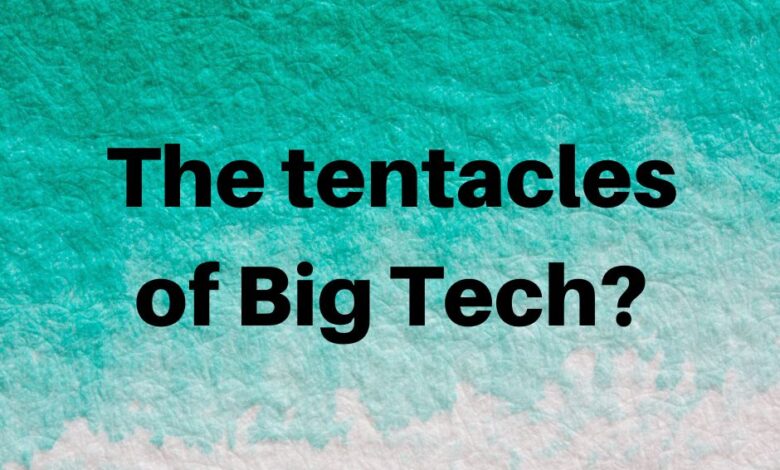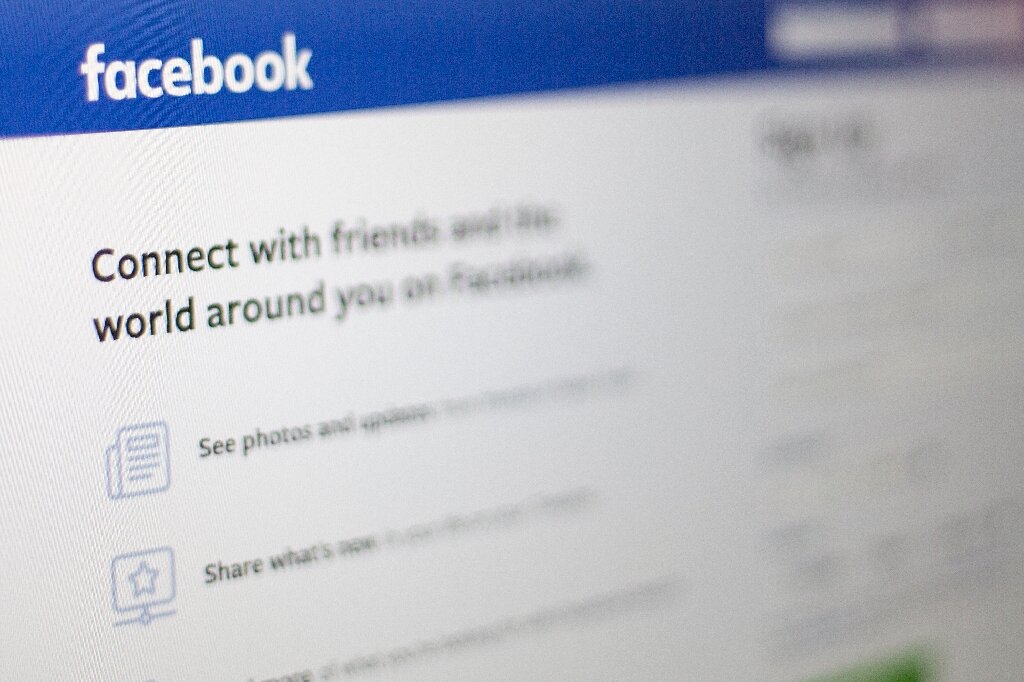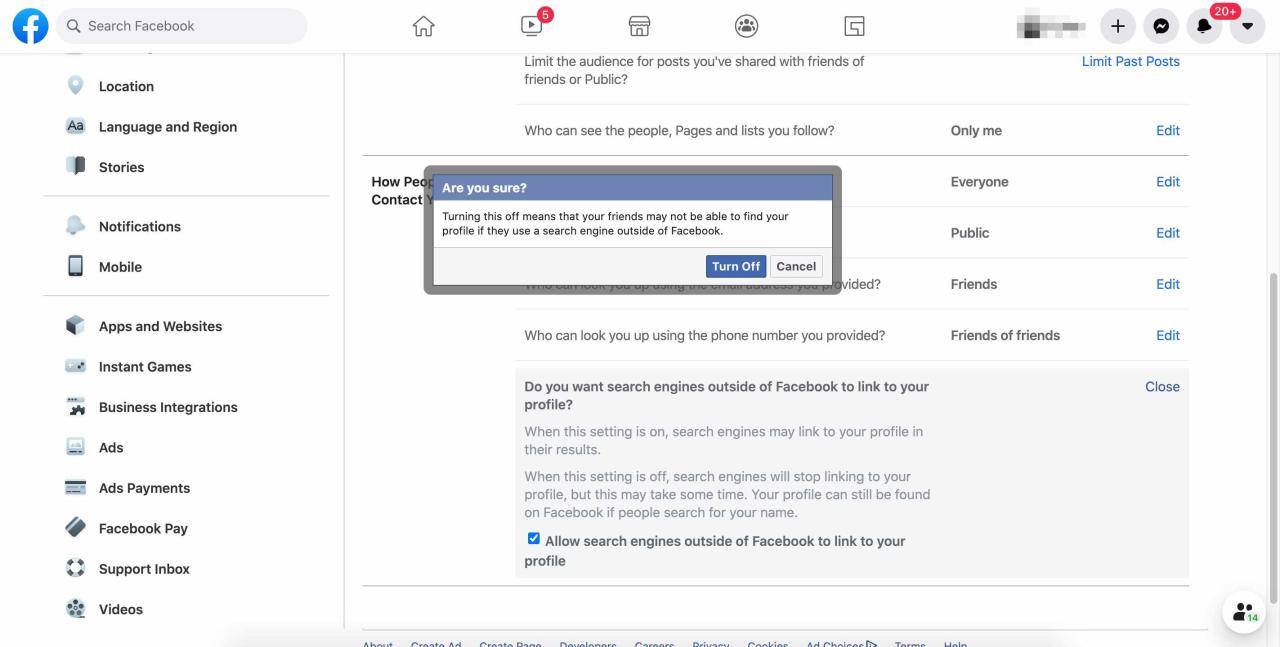
Facebook to Access Private Medical Records of US Populace
Facebook to Access Private Medical Records of US Populace to match the info to user profiles – the very idea sends chills down my spine. Imagine a world where your most private health information, the details of your illnesses, treatments, and even genetic predispositions, are readily available to a massive social media corporation. This isn’t some dystopian novel; it’s a chillingly plausible scenario given Facebook’s vast data collection practices and the potential vulnerabilities in our healthcare systems.
This post dives deep into the hypothetical process, exploring the ethical and legal implications, and examining the potential consequences of such a breach of privacy.
The sheer scale of Facebook’s data collection is staggering. They gather everything from your likes and posts to your location data and browsing history. Now, imagine adding highly sensitive medical records to that already extensive profile. The potential for misuse – from targeted advertising based on pre-existing conditions to insurance discrimination – is terrifying. The legal and ethical considerations are equally complex, raising serious questions about consent, data security, and the very definition of privacy in the digital age.
We’ll unpack all of this and more, exploring the hypothetical process of how such a match might occur, the potential consequences, and what steps could be taken to prevent it.
Facebook’s Data Collection Practices

Facebook’s vast user base and intricate algorithms make its data collection practices a subject of significant public interest and scrutiny. Understanding these practices is crucial for navigating the digital landscape and protecting personal information. This examination will delve into the methods employed, the legal underpinnings, potential security vulnerabilities, and a comparative analysis with other major social media platforms.
Facebook’s Data Collection Methods and Information Gathered
Facebook gathers user data through various means, actively and passively. Active data collection involves users directly providing information through profile creation, posts, messages, and interactions with apps and websites connected to Facebook. This includes personal details like name, age, location, relationship status, employment, education, and interests. Passive data collection, however, is more subtle. Facebook tracks user activity on its platform, including browsing history, search queries, likes, shares, comments, and the duration of time spent on specific content.
This data is augmented by information gathered from third-party apps and websites integrated with Facebook’s services, often without explicit user awareness. Furthermore, Facebook utilizes cookies and similar tracking technologies to monitor user behavior across the internet, building a comprehensive profile beyond the confines of its platform. This extensive data collection enables targeted advertising and personalized content delivery, but also raises significant privacy concerns.
Legal Frameworks and User Agreements Governing Data Acquisition
Facebook’s data acquisition practices are governed by a complex interplay of laws and regulations, primarily focusing on data protection and privacy. These vary depending on the user’s location and the specific data being collected. Key legislation includes the General Data Protection Regulation (GDPR) in Europe and the California Consumer Privacy Act (CCPA) in the United States. Facebook’s Data Policy, a lengthy and legally binding document, Artikels its data collection, usage, and sharing practices.
Users implicitly agree to these terms upon creating an account. However, the complexity and length of these agreements often make it difficult for the average user to fully comprehend the extent of their data being collected and how it is utilized. The effectiveness of these legal frameworks in truly protecting user privacy remains a subject of ongoing debate and legal challenges.
Potential Vulnerabilities in Facebook’s Data Security Infrastructure
Despite Facebook’s investments in security, vulnerabilities remain. Past data breaches and security incidents highlight the potential for unauthorized access to user data. These vulnerabilities can stem from various sources, including software bugs, phishing attacks targeting employees, and sophisticated hacking attempts. The sheer volume of data held by Facebook makes it a prime target for cyberattacks, and the consequences of a large-scale breach could be catastrophic for users’ privacy and security.
Furthermore, the reliance on third-party apps and integrations introduces additional security risks, as data shared with these apps might not be subject to the same level of protection as data directly held by Facebook. Continuous monitoring, robust security protocols, and transparent reporting of security incidents are crucial for mitigating these risks.
Comparative Analysis of Data Privacy Policies
| Platform | Data Collected | Data Usage | Security Measures |
|---|---|---|---|
| Extensive personal information, browsing history, app usage, location data, etc. | Targeted advertising, personalized content, platform improvements, research. | Encryption, access controls, security audits, incident response teams. | |
| Tweets, user profiles, interactions, location data (if enabled). | Targeted advertising, platform improvements, research, content moderation. | Encryption, account security features, content moderation tools. | |
| Photos, videos, user profiles, interactions, location data (if enabled). | Targeted advertising, personalized content, platform improvements, research. | Encryption, account security features, content moderation tools. | |
| YouTube | Viewing history, search history, comments, likes, subscriptions. | Targeted advertising, personalized recommendations, platform improvements, research. | Encryption, account security features, content moderation tools. |
Accessibility of Private Medical Records

Facebook’s potential to access and utilize private medical records raises significant concerns regarding privacy, security, and ethical boundaries. The sheer volume of data involved and the potential for misuse necessitates a thorough examination of the sources, legal ramifications, technical challenges, and limitations of anonymization techniques.
Potential Sources of Private Medical Records
Facebook could potentially obtain private medical records through various avenues. Data breaches at healthcare providers, either through hacking or insider threats, could expose patient information that could then be acquired and matched to Facebook profiles using publicly available identifiers such as name, date of birth, and location. Furthermore, third-party data brokers often compile and sell aggregated health data, potentially including sensitive information that could be purchased by Facebook or its partners.
Finally, users themselves might inadvertently share health information on their Facebook profiles or through connected apps, creating opportunities for data aggregation.
Legal and Ethical Implications of Accessing Medical Records Without Consent
Accessing and utilizing private medical records without explicit consent is a serious violation of both legal and ethical principles. HIPAA (Health Insurance Portability and Accountability Act) in the United States, and similar regulations in other countries, strictly govern the handling of protected health information (PHI). Unauthorized access and use of PHI can result in significant legal penalties for companies, including hefty fines and reputational damage.
Ethically, such actions undermine the trust between patients and healthcare providers, violating fundamental rights to privacy and autonomy over one’s own health information. The potential for discrimination, stigmatization, and misuse of sensitive health data for targeted advertising or other exploitative purposes is particularly concerning.
Technical Challenges in Matching Medical Records to Facebook Profiles
Matching medical records to Facebook profiles presents significant technical hurdles. While seemingly simple at first glance, the process requires sophisticated data linkage techniques to overcome inconsistencies in data formats, spelling variations, and the lack of unique identifiers across different datasets. Furthermore, the process needs to account for individuals who use different names on Facebook compared to their medical records, or those who have moved and updated their addresses on Facebook but not in their medical records.
The complexity is amplified by the scale of data involved, requiring powerful computing resources and advanced algorithms to perform accurate and efficient matching. The potential for inaccurate matches, leading to incorrect inferences and potentially harmful consequences, adds another layer of complexity.
Data Anonymization Techniques and Their Limitations
Data anonymization techniques aim to remove or obscure identifying information from datasets to protect individual privacy. Common methods include removing direct identifiers (e.g., names, addresses), replacing sensitive data with generalized values (e.g., age ranges instead of precise ages), and using data masking or encryption. However, even with these techniques, the risk of re-identification remains. In the context of matching medical records to Facebook profiles, techniques like differential privacy and k-anonymity might be employed.
However, these methods have limitations. For example, if sufficient auxiliary data (information from other sources) is available, it may still be possible to link anonymized medical records back to specific Facebook profiles, defeating the purpose of anonymization. The effectiveness of anonymization heavily depends on the quality and completeness of the anonymization process and the availability of external data that could be used for re-identification.
Hypothetical Matching Process
Facebook’s hypothetical attempt to link user profiles with private medical records would necessitate a complex multi-stage process, fraught with ethical and legal concerns. This process would rely on identifying overlapping data points between Facebook’s user information and anonymized medical datasets. The accuracy and reliability of such a process would be heavily dependent on the quality and completeness of both datasets, as well as the sophistication of the matching algorithms employed.This section details a hypothetical matching process, outlining potential methods and challenges.
It’s crucial to remember this is a hypothetical exercise; the actual implementation of such a process would be extremely difficult and ethically problematic.
Data Preprocessing and Anonymization
Before any matching can occur, both datasets – Facebook’s user data and the medical records – require significant preprocessing. Facebook’s data would need to be carefully scrubbed to remove personally identifiable information (PII) that isn’t already anonymized. This includes removing explicit identifiers like names and addresses. The medical records, which are often already partially anonymized, would also undergo further processing to ensure consistent formatting and the removal of any remaining explicit PII.
The idea of Facebook accessing private medical records of the US populace to build user profiles is chilling, a massive invasion of privacy. This isn’t just hypothetical; it’s a natural progression from what we already know – as evidenced by reports like this one detailing Facebook asking bank account info and card transactions of users: facebook asking bank account info and card transactions of users.
If they’re collecting financial data, what’s to stop them from collecting health data next? It’s a terrifying prospect of data aggregation and potential misuse.
This step involves techniques like data masking, generalization, and tokenization. For instance, dates of birth might be aggregated into age ranges, and locations might be generalized to broader geographic areas. The success of this preprocessing phase significantly impacts the subsequent matching process. If anonymization is insufficient, it risks re-identification of individuals, raising serious privacy concerns.
The idea of Facebook accessing private US medical records to build user profiles is seriously unsettling. It highlights the urgent need for robust data protection, which is why understanding the advancements in cloud security is so crucial. Check out this article on bitglass and the rise of cloud security posture management to see how companies are trying to prevent such breaches.
Ultimately, stronger security measures are the only way to truly protect our sensitive information from this kind of misuse.
Potential Matching Methods
Several methods could be employed to match anonymized user profiles with medical records. One approach involves probabilistic record linkage, using a combination of demographic data like age, gender, and location. Another method involves employing more sophisticated techniques like machine learning algorithms that can identify patterns and correlations between seemingly disparate data points. These algorithms could analyze combinations of less explicit information, such as medical diagnoses coded using ICD codes, combined with Facebook’s inferred interests, location history, and activity data.
However, the reliability of these methods depends on the richness and consistency of the data. For example, if a medical record contains an imprecise location, it will be harder to match it with Facebook’s location data.
Accuracy and Reliability of Matching Algorithms
The accuracy and reliability of different matching algorithms vary greatly. Simple algorithms relying on exact matches of a few key demographic variables (e.g., age, gender, zip code) will have a high precision but low recall – they’ll correctly identify a small number of matches, but miss many potential matches. More sophisticated probabilistic methods and machine learning algorithms, on the other hand, can achieve higher recall at the cost of potentially lower precision – they might identify more matches, but with a higher chance of false positives.
The optimal algorithm depends on the specific datasets and the acceptable balance between precision and recall. Furthermore, the inherent limitations of anonymization techniques mean that perfect matching is unlikely.
Hypothetical Matching Process Steps
The following steps Artikel a hypothetical matching process:
- Data Acquisition and Preparation: This involves gathering Facebook user data and medical records, followed by data cleaning, standardization, and anonymization. Sub-processes include data validation, error correction, and the implementation of appropriate anonymization techniques.
- Feature Engineering: Relevant features from both datasets are extracted and prepared for matching. This includes selecting demographic attributes, medical codes, and inferred user interests from Facebook data. Sub-processes include data transformation, feature scaling, and handling missing values.
- Record Linkage: Matching algorithms are applied to link anonymized records. This might involve using probabilistic linkage techniques or machine learning models, such as supervised learning methods trained on a subset of linked records. Sub-processes include algorithm selection, parameter tuning, and performance evaluation.
- Verification and Validation: The matched records are reviewed and validated to assess the accuracy and reliability of the matching process. This step might involve manual review of a sample of matches and the use of additional data sources to confirm identities. Sub-processes include quality control, error analysis, and refinement of matching parameters.
Potential Consequences and Impacts
The hypothetical scenario of Facebook accessing and linking private medical records to user profiles presents a multitude of serious consequences for individuals, public health, and the overall societal trust in both social media and healthcare systems. The potential for harm is significant and far-reaching, extending beyond simple privacy violations.The implications for individuals are deeply concerning. Linking medical information to Facebook profiles creates a vast, easily accessible repository of sensitive data vulnerable to misuse.
This could lead to significant and lasting harm, affecting various aspects of an individual’s life.
Impact on Individuals
The consequences for individuals are multifaceted. Imagine a situation where an employer gains access to an employee’s medical history, revealing a pre-existing condition. This could lead to unfair employment practices, such as denial of promotion, termination, or even refusal of employment altogether. Similarly, insurance companies could use this information to deny coverage or increase premiums, leading to financial hardship.
Furthermore, personal relationships could be negatively affected if sensitive medical information is revealed without consent, potentially leading to social stigma or discrimination. This breach of trust could have devastating emotional and psychological impacts.
Impact on Public Health and Healthcare Systems
The erosion of trust in healthcare providers would be a substantial consequence. If individuals believe their medical information is not secure, they may be less likely to seek necessary care or disclose critical information to their doctors, hindering effective diagnosis and treatment. This could negatively impact public health initiatives relying on the accurate and timely reporting of health data.
For example, contact tracing efforts during a pandemic would be severely hampered if individuals fear their participation will lead to the disclosure of their medical information on social media. Data breaches on this scale could also cripple the development of effective public health strategies.
Potential for Misuse and Malicious Activities
The potential for misuse of this data for fraudulent activities is immense. Identity theft, medical insurance fraud, and targeted phishing scams are all realistic threats. Imagine a scenario where a malicious actor gains access to an individual’s medical records and uses this information to create fake identities or access their financial accounts. Furthermore, the data could be used for targeted advertising, with companies offering products or services based on an individual’s health conditions.
This kind of exploitation could lead to significant financial losses and emotional distress for individuals. The potential for discrimination based on pre-existing conditions or genetic predispositions is another significant concern.
Erosion of Trust in Social Media and Healthcare
The widespread linking of medical records to Facebook profiles would irrevocably damage public trust in both social media platforms and healthcare providers. The very foundation of the doctor-patient relationship rests on confidentiality and trust. A breach of this trust could have long-term consequences for healthcare delivery and public health initiatives. Similarly, the already strained trust in social media platforms would be further eroded, leading to a decline in user engagement and a loss of confidence in the ability of these platforms to protect user data.
The resulting lack of trust could have profound societal implications.
Mitigation Strategies and Regulatory Responses

Preventing Facebook, or any social media platform, from accessing and utilizing private medical records requires a multi-pronged approach encompassing robust technological safeguards, stringent regulatory frameworks, and a heightened awareness among individuals regarding data privacy. This isn’t simply about preventing a hypothetical scenario; it’s about safeguarding sensitive information in an increasingly interconnected world.The core challenge lies in the intersection of powerful data-gathering technologies and the inherent vulnerabilities of personal health information.
Facebook’s immense data collection capabilities, combined with the potential for data breaches and unauthorized access, create a significant risk. Effective mitigation strategies must address both the technical aspects of data security and the legal and ethical frameworks governing data usage.
Data Protection Regulations and Their Role, Facebook to access private medical records of us populace to match the info to user profiles
Data protection regulations play a crucial role in preventing unauthorized access to and use of private medical records by social media companies. These regulations establish legal frameworks that define what constitutes personal data, how it should be collected, stored, and processed, and what rights individuals have regarding their own data. Stronger enforcement of existing regulations, coupled with the creation of new regulations specifically addressing the intersection of social media and healthcare data, is essential.
For instance, regulations could mandate explicit consent for the sharing of health data with social media platforms, introduce stricter penalties for violations, and require data minimization and purpose limitation – meaning data collected should be limited to the specific purpose stated and no more.
Examples of Applicable Regulations and Policies
Several existing regulations and policies could be applied to prevent the scenario of Facebook accessing private medical records. The Health Insurance Portability and Accountability Act (HIPAA) in the United States, for example, sets strict standards for the protection of patient health information. The General Data Protection Regulation (GDPR) in the European Union provides individuals with significant control over their personal data, including the right to access, rectify, and erase their data.
The idea of Facebook accessing private US medical records to build user profiles is seriously unsettling. It highlights the urgent need for robust data privacy solutions, and I wonder how much of this could be prevented with better app development practices. Learning more about secure development is key, which is why I’ve been diving into resources like this article on domino app dev the low code and pro code future , hoping to understand how to build more secure systems.
Ultimately, the Facebook scenario underscores the critical importance of responsible data handling in app development.
California’s Consumer Privacy Act (CCPA) also offers robust consumer data protection rights. These regulations, while not specifically designed for the social media context, offer valuable frameworks for protecting sensitive health information. Further, regulations focused on data breaches and notification requirements, such as those found in many states and countries, can help ensure timely disclosure and mitigation of harm in case of unauthorized access.
Recommendations for Improving Data Security and Privacy
The following recommendations aim to improve data security and privacy in the context of social media and healthcare:
- Stricter Data Minimization and Purpose Limitation: Social media companies should only collect the minimum necessary data, and its use should be strictly limited to the stated purpose.
- Enhanced Data Encryption and Security Protocols: Implement robust encryption methods throughout the data lifecycle to protect against unauthorized access.
- Independent Audits and Transparency: Regular, independent audits of data handling practices should be mandated, with transparent reporting of findings.
- Strengthened Consent Mechanisms: Implement clear, concise, and easily understandable consent mechanisms for the use of sensitive data, allowing individuals to opt out easily.
- Improved Data Breach Notification Procedures: Establish swift and transparent notification procedures in the event of a data breach, ensuring affected individuals are informed promptly.
- Increased Penalties for Non-Compliance: Significant penalties should be imposed for violations of data protection regulations to deter non-compliance.
- Cross-Border Data Transfer Regulations: Clear regulations should govern the transfer of personal data across borders, ensuring adequate protection levels are maintained.
- Public Awareness Campaigns: Educate the public about data privacy risks and empower individuals to protect their own data.
Closing Notes
The prospect of Facebook accessing and matching private medical records to user profiles is a deeply unsettling one, highlighting the critical need for stronger data protection regulations and increased transparency from social media companies. While this scenario is hypothetical, the underlying issues of data privacy and security are very real. We need to be proactive in demanding greater accountability from tech giants and actively protecting our sensitive personal information.
The future of privacy depends on it, and we all have a role to play in safeguarding our data. Let’s stay vigilant and informed.
FAQ Insights: Facebook To Access Private Medical Records Of Us Populace To Match The Info To User Profiles
What specific laws could be violated if Facebook accessed private medical records without consent?
HIPAA (Health Insurance Portability and Accountability Act) in the US, and GDPR (General Data Protection Regulation) in Europe, are key examples of laws that would likely be violated. These laws strictly regulate the collection, use, and disclosure of protected health information.
Could anonymization techniques truly protect medical records from being linked to Facebook profiles?
While anonymization techniques aim to remove identifying information, they are not foolproof. Clever techniques using demographic data and other publicly available information could potentially re-identify individuals even with anonymized data.
What role do insurance companies play in this potential scenario?
Insurance companies could be both a source of the medical data and a potential beneficiary of its misuse. Access to this data could lead to discriminatory practices, such as denying coverage or increasing premiums based on pre-existing conditions.
